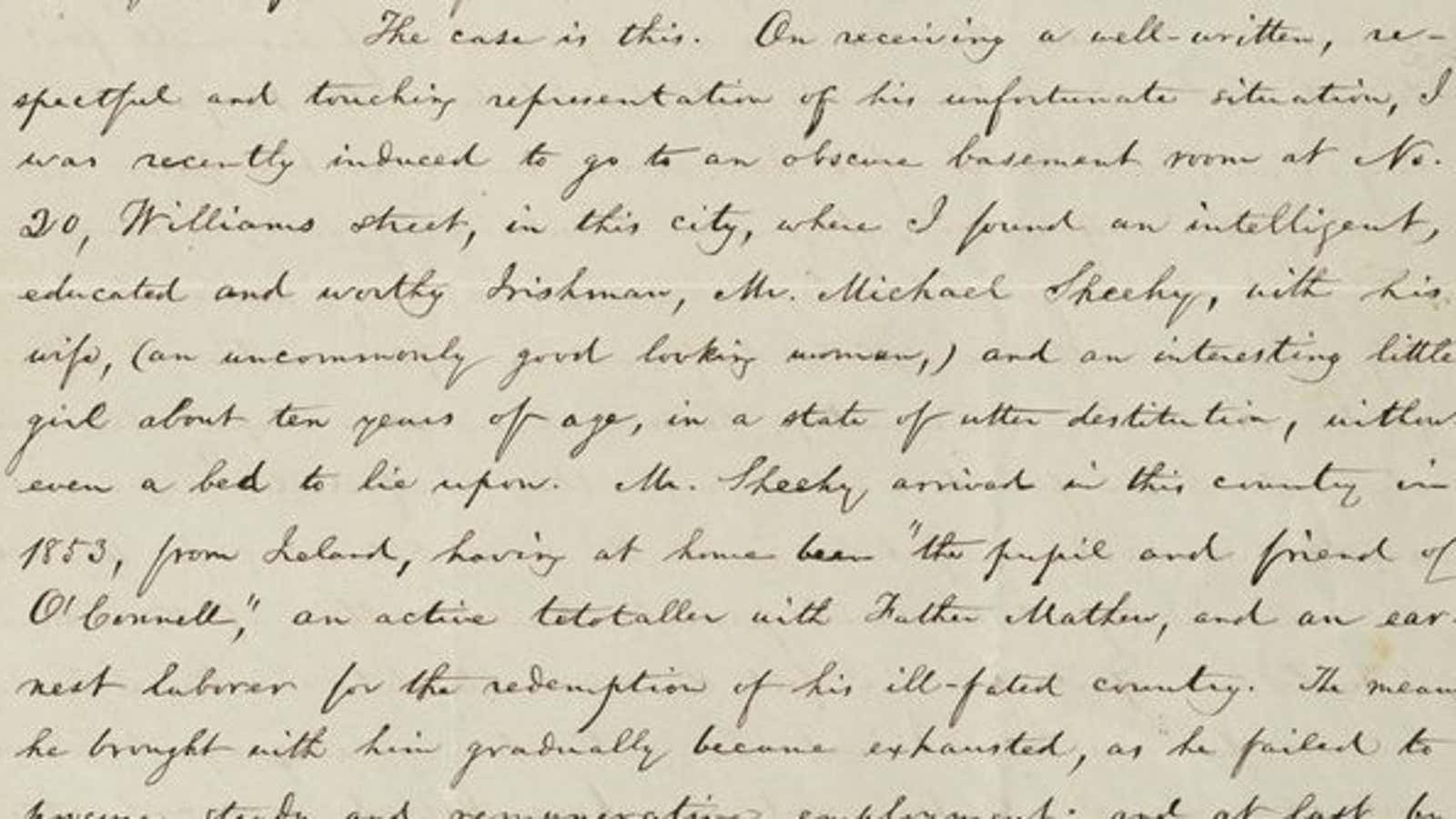The US abolitionist movement needs your help.
Massachusetts’s Boston Public Library has launched an open-source project that lets anyone who can read this sentence and type on a computer help preserve history. The library’s new site shows participants handwritten letters from the abolitionist movement from the 1830s to 1870s, and asks them to transcribe one line at a time.
The interface takes some getting used to, but without too much squinting or difficulty, you could reasonably transcribe a few sentences in 10 minutes.
Here’s an 1837 passage from anti-slavery activist Abby Kelley that I transcribed in half an hour:
I will say a word by here as I find that I cannot see thee at this time in [unclear place name]. The subject of Peace has of late claimed much of my attention on account of the present aspect of the Abolition cause…Is slavery the greatest sin of this nation? Is not something more required of us than what we are now doing? Please give my love to thy sisters, and ask them if they will write me on the subject alluded to. I would have no one abandon the Anti-Slavery enterprise—I would only have them engage in another enterprise, which would establish abolition on an immutable basis.
Each line in a letter needs three transcribers before the letter is considered finished. The process works like reCAPTCHA, the fields you see around the web that ask you to read and type back numbers and letters to prove you’re not a bot. Your mini-transcription for each reCAPTCHA adds to a consensus that helps digitize poorly scanned documents.
Eventually the transcribed letters will be added to Massachusetts’s online collections. And the letters will be machine readable, meaning more generally that they’ll be searchable, available for natural-language processing research, and accessible to the visually impaired. And also legible to kids who can’t read cursive.
